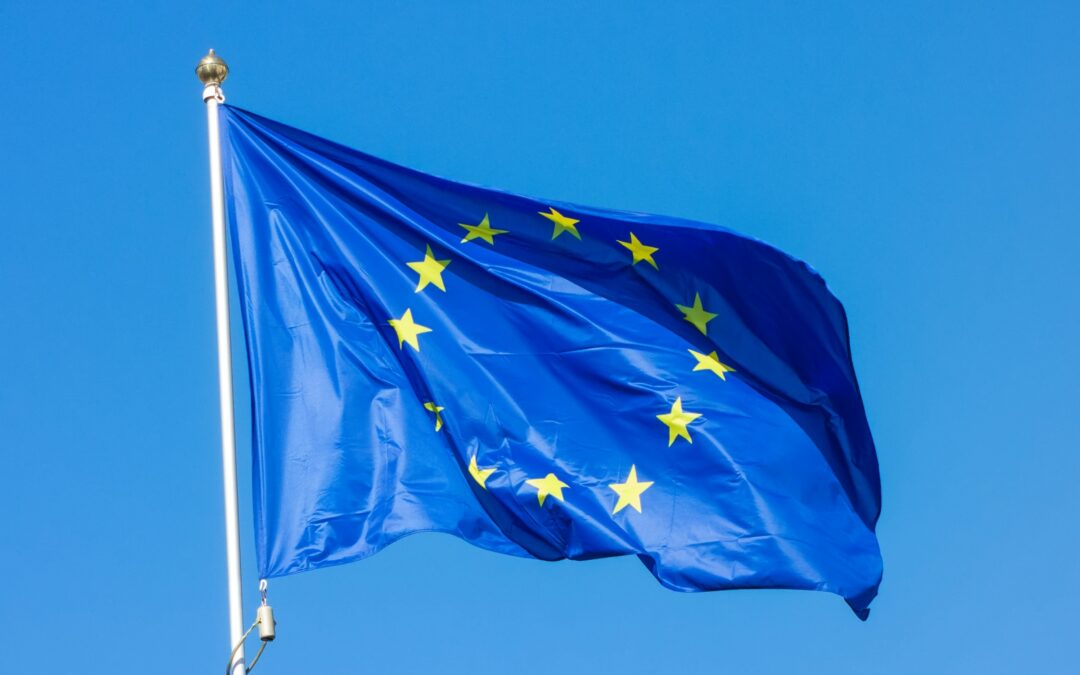The European Union is preparing for a new era of technology regulation. The focus is on giants such as Meta and Apple. The EU Commission has initiated proceedings to investigate possible infringements of the Digital Markets Act (DMA) to be examined. This draft law is intended to promote competition in the digital market and limit the market power of large technology companies.
Surprisingly, there are many indications that the EU regulation could be more lenient than originally assumed. The Commission plans to impose only moderate penalties on Apple and Meta. The reasons for this are the time limit on infringements and the focus on compliance with the DMA requirements rather than massive fines.
The Privacy policy play a central role in this debate. Apple expresses privacy concerns as Meta demands access to iOS software. At the same time, Meta argues that Apple is raising unfounded privacy concerns to conceal anti-competitive behavior. These tensions highlight the complexity of EU regulation in the area of competition law for technology companies.
Important findings
- EU Commission initiates proceedings against tech giants
- Milder regulation than expected for Meta and Apple
- Focus on DMA compliance instead of high penalties
- Data protection concerns at the center of the debate
- European tech companies call for strict enforcement
Background to EU regulation
The EU relies on strict rules for digital markets. The Digital Markets Act (DMA) and the Digital Services Act (DSA) form the foundation of the Big Tech Regulation. These laws aim to limit the power of large technology companies and promote fair competition.
Key points of regulation
In September 2023, the EU Commission designated six companies as "gatekeepers": Alphabet, Amazon, Apple, ByteDance, Meta and Microsoft. These companies must now meet the requirements of the DMA within six months. The Platform regulation is intended to strengthen competition and protect consumer rights.
Current developments
The EU Commission opened competition proceedings against Alphabet, Apple and Meta in March 2024. Allegations range from favoring their own services to restricting users' freedom of choice. These steps underline the EU's determination to enforce the new rules for digital markets to enforce.
Reactions and outlook
European technology groups are calling for strict enforcement of the rules. They see a risk that tech giants could circumvent the regulations. The EU Commission reaffirms its commitment to ensuring fair and secure online environments for all companies in the EU single market.
Meta and Apple in the focus of regulation
EU regulators are increasingly turning their attention to tech giants such as Meta and Apple. This is taking place within the framework of antitrust law and new laws such as the Digital Markets Act and Digital Services Act. Both companies are in the spotlight due to their market power and data usage practices.
Reasons for targeted observation
Meta and Apple dominate their respective markets. Facebook, WhatsApp and Instagram belong to Meta and dominate the social media landscape. Apple controls an important operating system and the App Store with iOS. This power enables them to collect and use data on a large scale.
The Digital Markets Act aims to prevent unfair practices by these gatekeepers. It is intended to create more competition and give users more control over their data. The Digital Services Act complements this with rules on content moderation and transparency.
EU measures to date
The EU has already had to take action against tech companies on several occasions. Google received antitrust fines in the billions. Facebook had to pay fines for data protection violations. These experiences are shaping the current regulatory debate and explain the focus on Meta and Apple.
The new laws are intended to have a preventative effect and make the market fairer. Whether they will actually lead to more lenient regulation remains to be seen. One thing is certain: Meta and Apple will have to adapt to changes.
The current state of regulation
The EU regulation Meta Apple is the focus of the Supervisory authority. The European Commission has opened competition proceedings against technology groups to ensure compliance with the Digital Markets Act (DMA). This step aims to regulate the market power of large platforms.
Planned EU measures
The EU plans to impose minimal penalties on Apple and Meta. Apple must revise the rules of its App Store, while Meta is to change its "payment or consent" model. Despite potential penalties of up to 10% of global turnover, lower sanctions are expected.
Time frame for implementation
The Commission has given companies six months to comply with the obligations for their core platform services. Apple has already announced changes to iOS, Safari and the App Store that will come into force from March 2024. The final decision on penalties is expected by the end of the month.
| The company | Planned measures | Implementation deadline |
|---|---|---|
| Apple | Revision of App Store rules | 6 months |
| Meta | Change to "payment or consent" model | 6 months |
| Alphabet | Compliance with DMA obligations | 6 months |
Possible effects on Meta
The Platform regulation of the EU presents Meta with new challenges. The company must adapt its business model in order to comply with the stricter Privacy policy to do justice to them.
Business implications for Meta
Meta plans to give Facebook and Instagram users in Europe the choice to see less personalized advertising. This decision follows pressure from EU regulators. The new advertising model is based on the context of the user session and minimal information such as age and location.

In addition, Meta is lowering the price of ad-free subscriptions from €9.99 to €5.99 per month. These changes could affect Meta's advertising revenue, as less personalized advertising is often considered less effective.
User experience and data protection
The new Privacy policy force Meta to handle user data more transparently. Users are given more control over their personal information. However, Meta warns that the less personalized advertising could be less relevant for users.
The EU Commission welcomes these concessions, but is still conducting investigations. Meta may need to further adapt its business model to be fully compliant with the new regulations while remaining competitive.
Possible impact on Apple
EU regulation in the area of competition law for digital markets poses new challenges for Apple. The tech giant must adapt its business model to meet the requirements of the Digital Markets Act (DMA).
Consequences for Apple's business models
Apple is being forced to open up its previously closed ecosystem. This primarily concerns competitors' access to Apple's technology and operating system. The EU competition authorities are demanding seamless integration with iPhones and iPads for rivals.
Apple must also introduce a defined process for interoperability requests from app developers. Failure to comply could result in severe fines of up to 10% of global annual turnover.
Safeguarding user privacy
Apple expresses concerns about the privacy of its users. The company is particularly concerned about the access to the Apple operating system requested by Meta Platforms. Apple fears data protection compromises due to the extensive access to user data and activities on iPhones.
To meet these challenges, Apple has announced changes to iOS, Safari and the App Store. These include new APIs, enhanced app analytics and options for alternative payment methods. At the same time, Apple is introducing protective measures to minimize data protection and security risks.
| Measure | Goal | Impact |
|---|---|---|
| Opening up the ecosystem | Fulfillment of DMA requirements | Increased competition |
| New APIs | Interoperability | More diverse app landscape |
| Protective measures | Protect data privacy | Maintaining trust with users |
Comparison with other tech companies
The Big Tech Regulation of the EU affects not only Meta and Apple, but also other giants in the industry. The Digital Markets Act (DMA) and the Digital Services Act (DSA) aim to limit the market power of large technology companies.
Different regulatory approaches
The EU regulatory authorities approach each company individually. Google is under scrutiny for possibly favoring its own services in search results. Apple should open up its operating systems for more interoperability. Meta is criticized for its "pay-or-approve" model. Amazon is under investigation for favoring its own products.
Reactions from the tech giants
Companies react differently to the regulatory plans. Meta expresses concerns about the EU AI Act. Apple warns of security risks due to system opening. Google plans changes to comply with the DMA. Amazon emphasizes its cooperation with the authorities.
| The company | Main point of criticism | Reaction |
|---|---|---|
| Preference for own services | Customization of services | |
| Apple | Closed ecosystem | Safety concerns |
| Meta | "Pay-or-vote" model | Criticism of the EU AI Act |
| Amazon | Preference for own products | Cooperation with authorities |
The impact of these regulations on competitive dynamics in the technology sector remains to be seen. Smaller and European companies could benefit, while innovation may be slowed down. The Antitrust law plays a central role in shaping a fair digital future.
The opinion of consumers
The EU regulation Meta Apple is causing a lot of discussion among users. Many consumers see the planned measures as a step in the right direction to strengthen their data protection provisions.
Reactions to regulation
A recent survey shows: 68% of users welcome stricter rules for tech giants. They expect more transparency in the use of data and better protection of their privacy. However, many still find the planned EU regulation too lenient.
- 42% want tougher penalties for violations
- 57% demand more control over their personal data
- 63% want simpler data protection settings
Trust in tech companies
Trust in Meta and Apple has been damaged. Only 23% of respondents believe that the companies handle their data responsibly. EU regulation could bring improvements here. Many users hope that stricter data protection regulations will restore their trust in the tech giants.
"I expect more clarity from EU regulation about how my data is used. This could increase my trust in companies like Meta and Apple again."
Expert opinions on EU regulation
EU regulation, in particular the Digital Markets Act and the Digital Services Act, is causing controversy among experts. While some welcome the measures, others express concerns about possible negative effects.
Expert opinions: Pros and cons
The German Association of IT SMEs describes the Digital Markets Act as a Milestone for a digitally sovereign Europe. He sees this as an opportunity for smaller companies to operate in a fairer competitive environment. Press associations also welcome the commitment of tech giants to fair access conditions.
However, critical voices warn of unintended consequences. A study by the Connected Commerce Council shows that 42% of European SMEs rely on digital tools. The Digital Markets Act could make access to these tools more difficult and therefore harm small companies in particular.

Future prospects for regulation
The future of EU digital regulation remains controversial. Companies are calling for more legal certainty and a simplification of the rules in order to be able to compete globally. At the same time, there is growing concern that large tech companies could find ways to circumvent the regulations.
Despite the challenges, many experts see the Digital Services Act and Digital Markets Act as important steps towards promoting a fair digital market. However, the actual effects will only become apparent in the coming years.
Outlook for future regulation
EU tech regulation is facing major challenges. New technologies such as big data, robotics and AI are rapidly changing the economy. This poses problems for the supervisory authorities.
Trends in tech regulation
A key trend is the adaptation of competition law to the digital era. The EU has taken important steps with the Digital Markets Act (DMA) and the Digital Services Act (DSA). These laws aim to limit the power of large tech companies and create fair competitive conditions.
The EU AI Regulation, which came into force on August 1, 2024, is a milestone. It is intended to make AI systems transparent and non-discriminatory. A newly created European Committee on Artificial Intelligence monitors compliance with the rules.
Possible developments in EU legislation
The EU faces the challenge of reconciling environmental targets with economic viability. Strict emission standards and the ban on combustion engines from 2035 are being put to the test. The Supervisory authority must react flexibly so as not to hinder innovation.
The Competition law will need to evolve to keep pace with new business models. The future of EU regulation lies in a balanced approach that promotes innovation while protecting consumers.
Conclusion: Mild regulation?
In its current form, EU regulation for digital markets is surprisingly lenient towards tech giants such as Meta and Apple. This development raises questions about the effectiveness of the planned measures and leaves room for speculation about the future shape of the digital market in Europe.
Summary of the most important points
The EU regulation aims to create fair competitive conditions in the digital sector. Despite initial fears, Meta and Apple seem to be getting off lightly. Although the planned measures could require changes to the business models of these companies, they are less strict than expected.
Concluding thoughts on development
The lenient regulation could be a sign that the EU is seeking a middle way between consumer protection and promoting innovation. It remains to be seen whether this approach will be sufficient to limit the dominance of the tech giants on the digital markets and at the same time strengthen user confidence in these platforms.
